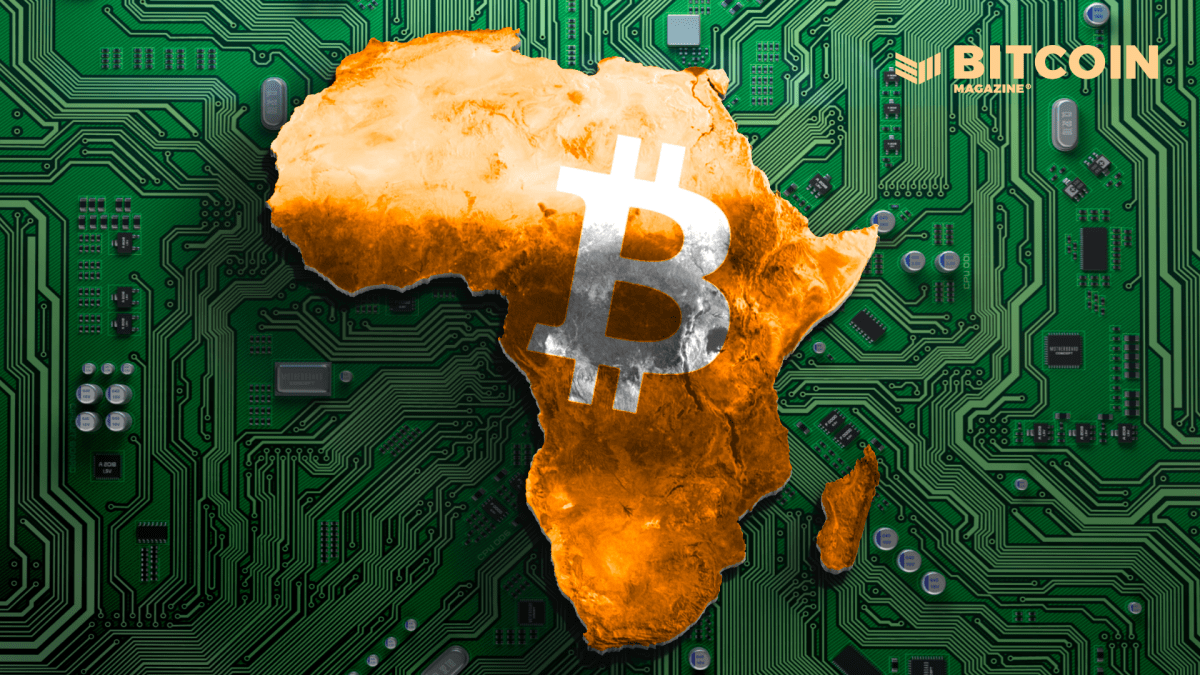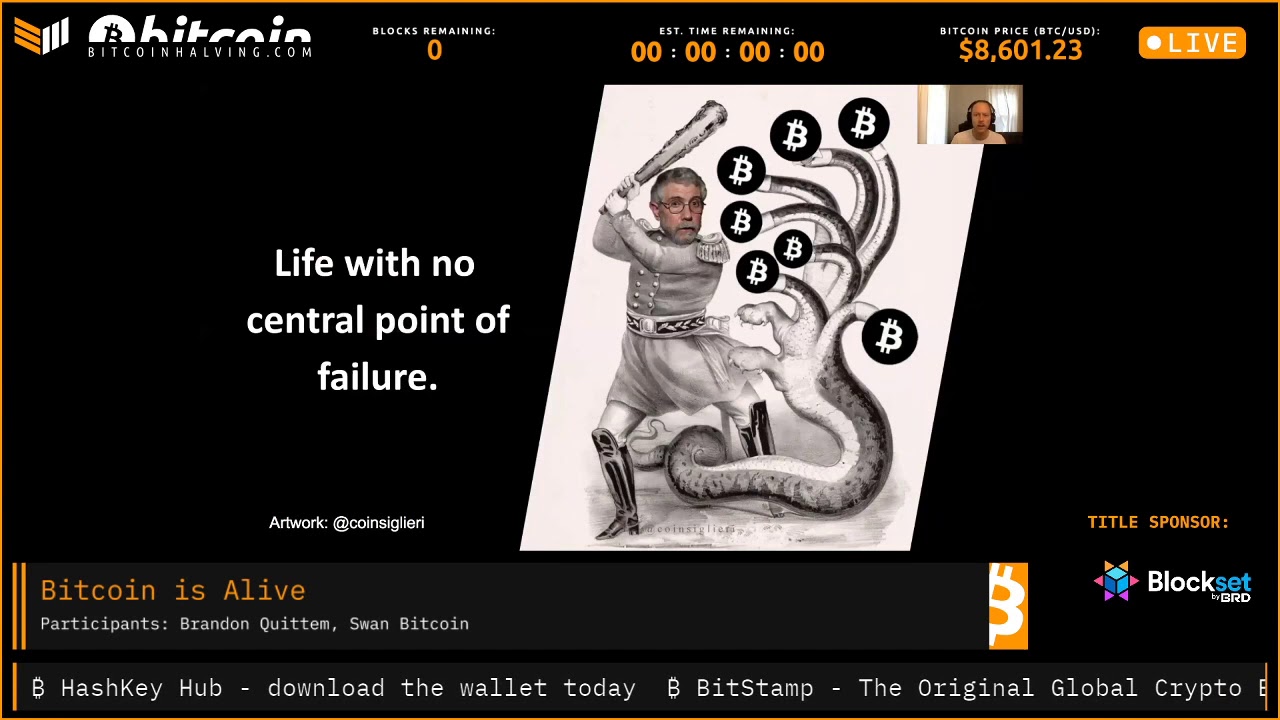Bitcoin 2022 Highlighted The Most Important Aspects Of Bitcoin
This year’s conference focused on the unlocking of human potential via sound money and more.
Bitcoin, like all tools, can be used for good or bad and thus its ultimate impact is a mirror for humanity. Bitcoin 2022 was a celebration of all the good that Bitcoin promises from promoting financial inclusion to freeing human potential through sound money free from political corruption. This celebration enjoyed another year of exponential growth. In 2019, the same conference hosted just 2,000 Bitcoin enthusiasts. The Bitcoin 2021 conference filled its venue in the Wynwood district of Miami, Florida, with over 12,000 attendees. For the 2022 Bitcoin conference, more than 25,000 attendees flocked to the sprawling Miami Beach Convention Center.
It is not just libertarian and anti-authoritarian individuals who see Bitcoin’s potential but large institutions as well. Michael Moro from Genesis Global Trading noted that the first institutions investing were “a guy in a basement with an LLC,” and later, “Silicon Valley venture capitalists and their family offices.” In 2021, blue-chip Wall Street companies including BlackRock, Morgan Stanley, and JPMorgan Chase all made major steps toward Bitcoin adoption. Nathan McCauley at Anchorage Digital noted that there is now increasing interest in Bitcoin coming from sovereign wealth funds. A panel discussion also noted that those in the $12 trillion-dollar wealth management business now realize they must offer their customers “something” in the cryptocurrency space. Thus, the question institutions are asking is no longer why they should adopt Bitcoin but how they can do it.
On the other side of the coin, Bitcoin’s inclusiveness and openness to the unbanked was a major theme of the conference just as it was at last year’s conference. Miles Suter from Cash App explained how Bitcoin is the world’s most inclusive financial system with universal access and fair incentives. He noted that in El Salvador, the first nation to adopt bitcoin as legal tender, 70% of its population is unbanked. Consistent with inclusion, speakers from nations spanning the globe made important announcements about Bitcoin adoption. Specifically, Prospera, a private charter city and special economic zone on the island of Roatán in Honduras announced that it will treat bitcoin as legal tender. The President of Madeira, an autonomous region in Portugal, announced that Bitcoiners need not pay tax when buying or selling the asset in his region. Finally, Senator Indira Kempis of Mexico announced a plan to introduce legislation that would make bitcoin legal tender across the nation of over 128 million people. Indeed, the most aggressive Bitcoin adoption is happening in the developing world, including Central America and Africa.
Numerous speakers touched on bitcoin’s strong appeal in the developing world where millions of people cannot rely upon a stable native currency — something we take for granted in the United States. In countries with unstable currencies like Venezuela, bitcoin has literally saved lives by offering a means to store value and avoid wealth confiscation. Senator Cynthia Lummis (R-WY) noted that most recently in war-torn Ukraine, bitcoin has been a vital means of instantly sending value where time is of the essence.
In fact, there was a panel dedicated to the humanitarian case for Bitcoin — something often overlooked by those fixated on the asset’s extraordinary price action. Alex Gladstein, who serves as the chief strategy officer at the Human Rights Foundation, declared that Bitcoin is about “freedom go up.” Yeonmi Park, a defector from North Korea, explained how, in her birth country, women are not allowed to have bank accounts and are sold into sexual slavery. Bitcoin, which cannot be controlled, canceled or confiscated offers a solution to help these women escape without being sold into bondage. Farida Nabourema, a Togolese human rights activist, noted that 180 million people live in French-speaking African countries and depend on a currency imposed by the French government that has no value outside their nations. She claimed that bitcoin is a currency of decolonization. Fadi Elsalameen, a political commentator on Arab-Israeli affairs, described how Palestinians gave up economic freedom for political control and have great difficulty sending money. Bitcoin gives these people a way to regain their economic freedom. To billionaire detractors of Bitcoin in the West, the message was clear — “check your financial privilege.”
In support of increased Bitcoin adoption in the United States, the undeniable return of high inflation was a recurring talking point. David Bailey, CEO of BTC Inc, demanded to raucous applause that Janet Yellen focus on fixing inflation before trying to “fix” Bitcoin. Consistent with that theme, Mike Novagratz, CEO of Galaxy Investment Partners, astutely referred to a “bear market of trust” in government currencies. While Novagratz warned that populism will debase fiat currencies, Bitcoin’s decentralized network gives everyone around the world a way to store value in an increasingly valuable asset that cannot be debased.
Although no governmental authority can control Bitcoin, panels at the conference encouraged favorable regulation of bitcoin and other cryptocurrencies. Kevin O’Leary of Shark Tank fame claimed that trillion-dollar pools in capital will flood into the crypto markets when regulatory clarity through policy is established. Lawmakers are already pushing for such clarity. For example, Senator Cynthia Lummis (R-WY) addressed the bipartisan “Responsible Financial Innovation Act” that she is co-sponsoring with Senator Kirsten Gillibrand (D-NY). These senators are seeking to create a comprehensive framework for regulating crypto markets and other digital assets. Lummis noted that she expects pushback against this bill but that Treasury Secretary Janet Yellen has recently been making positive statements about Bitcoin. Lummis also explained her bill seeks to regulate stablecoins pegged to the value of the U.S. dollar so that American consumers will use these privately issued assets instead of a government-issued central bank digital currency (CBDC). Instead of being issued to consumers, Lummis believes an American CBDC should be limited to wholesale or interbank transactions. Lummis argued that this approach to privately issued stablecoins and wholesale CBDCs is a more American approach than the digital yuan CBDC, which she claimed was being used as a tool of surveillance.
While Lummis has been a political pioneer, other politicians are now realizing that they must reckon with a quickly growing voting block that demands representatives who support Bitcoin. Miami Beach Mayor Dan Gelber (D) and Miami Mayor Francis Suarez (R) jointly opened the conference and proclaimed their support for Bitcoin. Mike Novagratz noted how a retail groundswell shocked Washington, D.C., by vehemently opposing the Biden administration’s attempt to “sneak in” a “poison pill” for the crypto market. According to Novagratz, the message from this growing and powerful voting block is simple, “Don’t screw with my Bitcoin.”
The number of Americans interacting with the Bitcoin network is poised to expand exponentially if a major announcement at the conference is fulfilled. This announcement from Jack Mallers, CEO of Strike, was about the Bitcoin Lightning Network, a Layer 2 payment network that runs off the main Bitcoin blockchain. Mallers argued in a colorful speech that credit card payment technology has been stagnant for 50 years and that the Bitcoin Lightning Network his company facilitates will soon be disrupting this industry at major retailers. Mallers announced that Strike had partnered with NCR, the world’s largest point-of-sale supplier, payments firm Blackhawk, and e-commerce giant Shopify to integrate the Lightning Network in their businesses. Once fully implemented, Americans will see the Bitcoin Lightning Network at blue-chip retailers like Walmart, McDonald’s and Home Depot, to name just a few. He explained that the Bitcoin Lightning Network allows for the instantaneous settlement of payments without any of the credit card network fees that merchants pay and pass to consumers through higher prices. While the Lightning Network always uses bitcoin to instantly transfer value with finality, the customer using the technology can seamlessly pay in U.S. dollars and the merchant receiving funds can likewise specify payment in U.S. dollars. Thus, the Bitcoin Lightning Network can flourish as a “virtually free” payment rail even if customers and merchants still prefer to spend and receive U.S. dollars. This will allow Bitcoin’s network to be used in everyday transactions, giving its blockchain exponentially greater utility and recognition.
Bitcoin miners, a crucial part of securing the Layer 1 Bitcoin network, had their own stage for speakers. Although Bitcoin’s proof-of-work blockchain has been criticized for its energy consumption, Fred Thiel, CEO of Marathon Digital Holdings, reminded the conference that Christmas trees use more electricity than bitcoin miners. Mike Levitt, CEO of Core Scientific, posited that as the Bitcoin network keeps doubling in size, its use case will win out and people will agree that spending energy to maintain the security of the blockchain is a worthwhile endeavor. Moreover, bitcoin mining technology is not static but quickly evolving. For example, bitcoin mining is flocking to places where excess electricity would otherwise be wasted and the mining computers are becoming far more efficient. A fantastic example of this reality is the project that ExxonMobil recently expanded where the company uses otherwise wasted flare gas from fossil fuel production to mine bitcoin. Technology has also improved to make mining in hotter climates including Texas and the Middle East more profitable. Mining companies that support the Bitcoin network are becoming more sophisticated, focusing more on renewable energy, and are driving increased efficiencies. It will always take energy to support the Bitcoin network and thus environmental social governance (ESG) will be an issue for the foreseeable future. But as Levitt noted, energy consumption is just one component of ESG and miners are doing great work to revive economically depressed areas and support their surrounding communities.
Consistent with Levitt’s point, the overarching theme from this year’s Bitcoin conference was not about price predictions or get rich quick schemes. Instead, the conference highlighted the founding hope of Bitcoin that humanity can excel when there is a sound money system that cannot be corrupted by political whim or central authorities. “Crypto bros” driving “Lambos” and lavish parties are easy targets for media attention. But the real story of Bitcoin 2022 is that the founding philosophy of Bitcoin is strong, giving financial agency to those who have been deprived of it, being adopted by institutions, and respected by politicians and nations. As Odell Beckham Jr. said on a celebrity panel, “Get with it.”
Bitcoin 2022 is part of the Bitcoin Event Series hosted by BTC Inc, the parent company of Bitcoin Magazine.
This is a guest post by Stuart Russell. Opinions expressed are entirely their own and do not necessarily reflect those of BTC Inc or Bitcoin Magazine.









